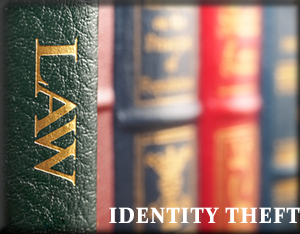 Identity theft and false impersonation are closely related crimes in Tulsa, Oklahoma.
Identity theft and false impersonation are closely related crimes in Tulsa, Oklahoma.
Identity theft is under the umbrella of crimes surrounding false impersonation. False impersonation is a lie coupled with a situation in which the lie takes unfair advantage of another.
Identity theft is fraudulently obtaining the identity of another person. It is most often used to defraud another.
What is Identity Theft in Tulsa?
In Oklahoma, identity theft is defined as fraudulently obtaining the name; address; Social Security number; date of birth; place of business or employment; debit, credit, or account numbers; driver’s license number; or any other personal identifying information of another person for the purpose of bettering one’s own financial situation by obtaining money, credit, goods, services, or the like without the consent of that person. Okla. Stat. tit. 21 § 1533.1
The law also expressly prohibits using another’s personal information to fraudulently obtain credit or anything of value or to obtain any identifying information of that person; willfully creating or changing another’s personal identifying information with the intent to defraud; and it is a misdemeanor to lend, sell, or give any of your identifying information to another person so that they can use it to create or obtain identifying documents.
Identity theft is a growing problem, and Oklahoma is cracking down on the crime. With so much personal information available online, hackers can easily snap up and sell this information.
The crime is punishable by one to five years in prison, or a fine of up to $100,000, or both. In addition, the court may order you to pay restitution to the victim and the victim may bring a civil action against you for damages.
A Crime of Intent
Identity theft is a crime of intent. The prosecutor must prove that a person acted knowingly and with fraudulent intent.
A prosecutor must also prove a person’s state of mind while that person was obtaining another’s personal information. Sometimes a person makes this admission when being questioned by the police or on the witness stand.
More often, a prosecutor will try to prove intent through circumstantial evidence. This could be emails, public statements made by the defendant, and the like.
Circumstantial evidence is often vulnerable to attack by an experienced Tulsa criminal defense attorney.
False Impersonation
False impersonation is taking on another person’s identity to obtain some sort of benefit. It occurs in a number of circumstances. Perhaps the most well-known is the false impersonation of a law enforcement officer.
Other ways in which false impersonation may occur is marrying someone under a false name; becoming a bail or surety for someone under a false identity; or signing, publishing or proving a document under a false name.
False impersonation can occur any time a person falsely impersonates another and either gains an advantage or escapes an obligation by doing so. Examples are evading a monetary obligation, avoiding a lawsuit, or gaining a monetary benefit.
False impersonation is a felony crime punishable by up to 10 years in prison. Okla. Stat. tit. 21 § 1531
This crime is also one of intent.
If by the false impersonation you receive money or property intended for another, the crime is a misdemeanor if the value of the property is less than $1,000. In that case, the crime is punishable by up to a year in the county jail, or a fine of up to $1,000, or both.
If the value of the property is between $1,000 and $2,500, the crime is a felony punishable by up to a year in jail or up to two years in prison at the discretion of the court. A fine of up to $5,000 may be assessed in addition to or in lieu of incarceration.
As the value of the property escalates, so does the penalties. You can face up to eight years in prison and fines up to $10,000. Okla. Stat. tit. 21 § 1532
Impersonating a Police Officer
Impersonating a police officer is a safety concern and can be treated harshly. If a person is injured, defrauded, or even annoyed as a result, the crime is a misdemeanor punishable by up to six months in county jail, or a fine of up to $2,000, or both.
However, if the impersonation is done in connection to a sham legal proceeding, the crime is a felony punishable by up to two years in prison, a fine of up to $5,000, or both. Okla. Stat. tit. 21 § 1533
Identity theft, false impersonation, and impersonating a police officer all have serious ramifications if you are convicted.
Always make sure to get the help you need. Prosecutors bring their A game. You should too.
Strategy Session with a Tulsa Criminal Defense Attorney
We are here to help when you need it most. We offer an initial strategy session with an experienced Tulsa criminal defense attorney.
Call Wirth Law Office – Tulsa at 918-879-1681 or toll free at 1-888-Wirth-Law (1-888-947-8452). You can also submit the question form at the top right of this page.




















